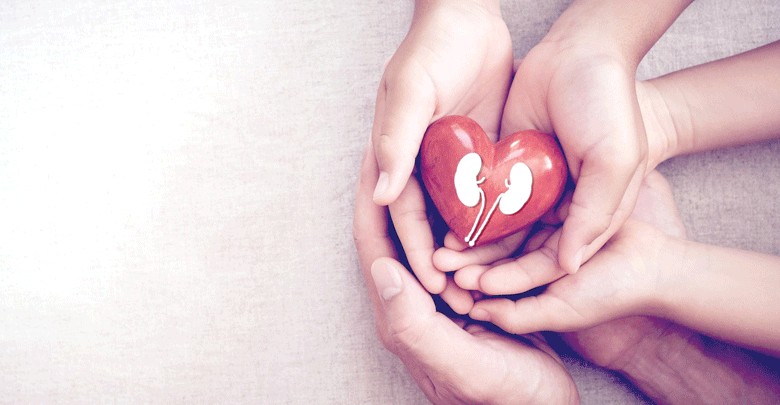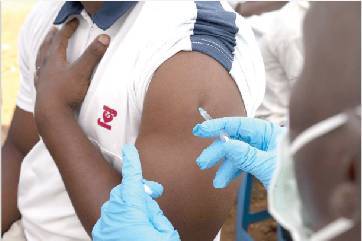Ten ways to keep the kidney healthy

These bean-shaped organs play a key role in the body as they filter blood, remove wastes, control the body’s fluid balance, and regulate blood pressure. However, emerging reports show some people suffering with severe cases of Covid-19 are showing signs of kidney damage, even for those who had no underlying kidney problems before they were infected with the coronavirus. This means we have to take care of this organ now more than ever. Milliam Murigi takes us through some lifestyle habits we should incorporate for our well-being.
1. Limit your intake of painkillers
Why are painkillers bad? They are dangerous because they decrease blood flow to the kidneys after some time.
This can cause a lot of stress on your kidneys. Common non-prescription pills such as ibuprofen and naproxen (NSAIDs) can cause kidney damage if taken too regularly over a prolonged period.
If you have healthy kidneys and use these medicines for occasional pain, they probably don’t pose a risk.
But if you take them for chronic pain, you should talk to your doctor about monitoring your kidney function or finding alternative ways to control your pain.
2. Don’t underestimate a cold
According to US Centre for Disease Control (CDC), the average person suffers from two to three colds per year.
Though these colds seem nothing more than harmless and annoying, you should not treat them like they are nothing.
If you leave colds without treatment, your body will produce more and more antibodies.
Over a period of time, these antibodies will start to become unhealthy for your kidneys. If you are feeling sick, you should see a doctor.
3. Don’t wait to use the restroom
Did you know that holding in your urge to use the restroom is one of the biggest causes of kidney problems?
The longer urine stays in your body, the worse it is for you. Urine is a hub for bacteria that shouldn’t be in your body anymore, and the longer it sits, the more bacteria it creates.
Eventually, this bacterium will make its way to your kidneys, and when that happens, you’ll wish it didn’t. When you have to go, try not to resist the urge.
4. Reduce salt intake
While eating salt can make food taste better, it can also upset the balance in your blood, which makes your kidneys have to work much harder to remove water from your body.
Research done in 2018 for the Journal of Clinical Hypertension proved that eating too much salt can directly lead to kidney disease.
Experts recommend people to limit their sodium intake to one teaspoon per day, which is about one-third less than the average people consumes.
5. Avoid processed foods
In order to keep food fresh for longer, companies often add high amounts of sodium, which is quite dangerous for your kidney health.
Other added ingredients are potassium and phosphorus, which are good in small amounts, but too much can be damaging.
6. Avoid eatin foods high in sugar
Sugar contributes to obesity, which increases your risk of developing high blood pressure and diabetes, two of the leading causes of kidney disease.
In addition to desserts, sugar is often added to foods and drinks that you may not consider “sweet.”
Avoid condiments, breakfast cereals, and white bread which are all sneaky sources of processed sugar.
Pay attention to the ingredients when buying packaged goods to avoid added sugar in your diet.to the high amount of phosphoric acid in soda, this also increases your risk for kidney problems.
7. Get enough sleep
A research by University of Chicago proved that poor sleep habits lead to an increased risk of kidney disease.
People who slept for six-and-a-half hours per day showed a 19 per cent increase in their chances of kidney failure from those who got a full-night’s sleep.
When you stay up too late, your kidneys also stay up late. Over time, lack of sleep can exhaust your kidneys and lead to failure.
8. Don’t stop a prescription early
We know it’s tempting to quit your prescription early when you start to feel better, but it’s actually a horrible idea.
Stopping a prescription before your illness is completely cured is bad for your kidneys.
Specifically, taking medications to help blood pressure or pain can severely damage your kidneys if used sporadically instead of regularly.
Your kidneys love routine and changing your medication routine every day will confuse your body.
9. Take enough water each day
The kidney’s main job is to filter toxins out of the body, so it is advisable to remain hydrated. Kidney stones most often result from chronic dehydration.
This is because when you are lacking water, your urine has a much higher concentration of minerals, which can crystalise inside of your kidneys and create stones.
There’s no magic behind the cliché advice to drink eight glasses of water a day, but it’s a good goal precisely because it encourages you to stay hydrated.
People who have previously had kidney stones should drink a bit more water to help prevent stone deposits in the future.
10. Watch your red meat intake
Eating red meat on occasion is not unhealthy, but eating too much of it is harmful to your kidneys over time.
Animal protein generates high amounts of acid in the blood that can be harmful to the kidneys and cause acidosis – a condition in which kidneys cannot eliminate acid fast enough.
Plant-based proteins actually repair kidney injury. Replacing one serving of red meat per week with a plant-based protein will actually lower your risk of kidney disease by 62 per cent.














